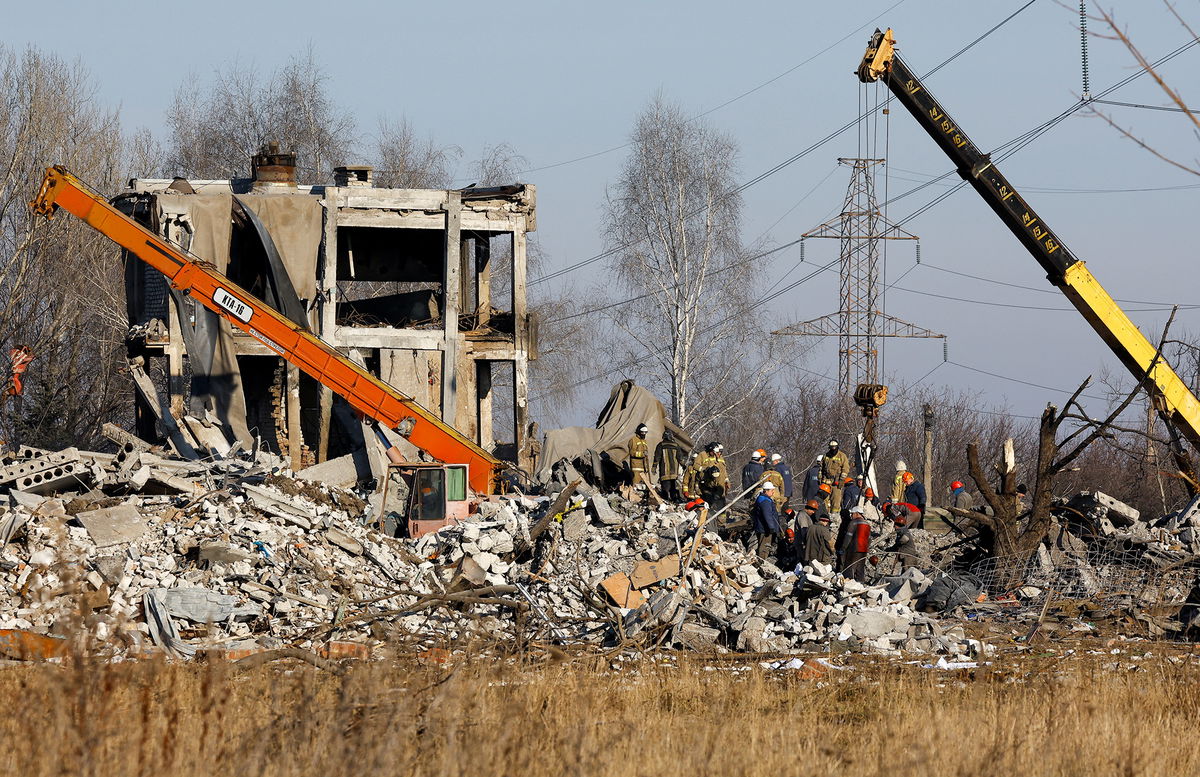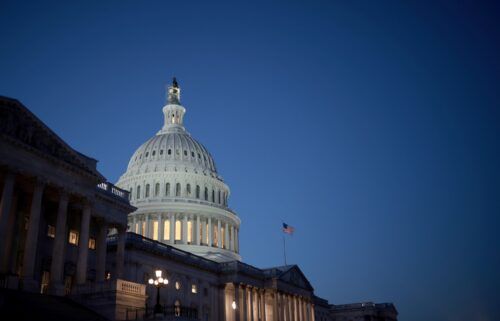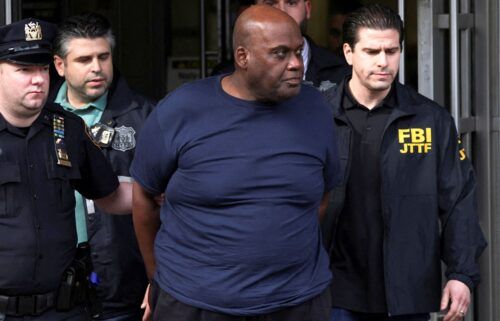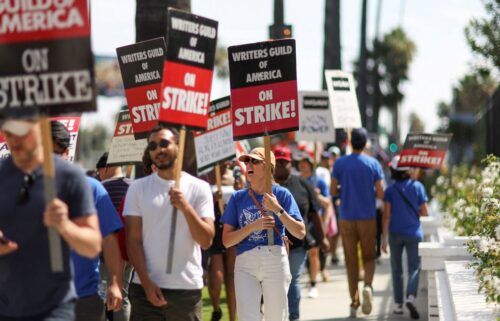Russian blame game breaks out after Moscow says its own troops’ cell phone use caused Makiivka strike

The Sunday Ukrainian strike targeted a vocational school housing the Russian conscripts were using in Makiivka
By Rob Picheta, Olga Voitovych and Mick Krever, CNN
A rare public blame game has broken out between the Russian government and some pro-Kremlin leaders and military experts, after Moscow appeared to blame its own soldiers’ use of cell phones for a Ukrainian strike that killed at least 89 troops on New Year’s Day.
The Russian Ministry of Defense said that “the main cause” of a strike in the occupied city of Makiivka was the widespread use of cell phones by Russian soldiers, “contrary to the ban,” which allowed Ukraine to “track and determine the coordinates of the soldiers’ locations.”
But that account was angrily dismissed by an influential military blogger and implicitly contradicted by the leader of the self-declared Donetsk People’s Republic (DPR) in eastern Ukraine, pointing to discord in the Russian command over Moscow’s response to the attack.
The strike took place just after midnight on Sunday, targeting a vocational school housing Russian conscripts in Makiivka, in the Donetsk region, according to both Ukrainian and pro-Russian accounts.
It prompted a rare Russian admission of a high death toll. The Ukrainian military reported even more dramatic figures, initially claiming up to around 400 Russian soldiers were killed. CNN cannot independently verify either side’s reported death toll. In either case, the strike marks one of the deadliest episodes of the conflict for Moscow’s forces.
Semyon Pegov, who blogs under the alias WarGonzo and two weeks ago was personally awarded the Order of Courage by President Vladimir Putin at the Kremlin, attacked the Ministry of Defense’s statement as “not convincing” and “a blatant attempt to smear blame.”
He questioned how the Ministry of Defense could be “so sure” that the location of soldiers lodging in a school building could not have been determined using drone surveillance or a local informant.
And he again raised suspicions about the official death toll, which was revised upward by Moscow to 89 from 63, writing that “their number will still be growing.”
In another post on Wednesday, Pegov warned that apathy on the battlefield will lead to more “tragedies.” Referring to the conflict both by its Kremlin euphemism — “special military operation” — and also by the word “war,” he said: “If you ask me personally what is the most dangerous thing in war, I will answer unequivocally: not to bother.”
‘They’re putting the blame on each other’
Pegov was joined in his sentiments by Denis Pushilin, the pro-Russian DPR leader, who pointedly praised the “heroism” of the soldiers killed in the strike shortly after the government pinned the blame on them.
“We know, and we know firsthand, what it is to suffer losses,” Pushilin said on Telegram Wednesday. “Based on the information I have, I can say with certainty that there were many displays of courage and real heroism by the guys in this regiment.”
“They risked their lives to help. Some of the dead were those who died when they went back to rescue their fellow service members,” he said.
Russia’s defense ministry statement also drew mockery from Ukraine’s military. “Of course, using phones with geolocation is a mistake. But it is clear that this version looks a bit ridiculous,” the spokesman for the Eastern Group of the Ukrainian Armed Forces, Serhii Cherevatyi, said Wednesday.
“Of course, this is a mistake [of the Russians], and I think that now they are engaged in [searching for] who is to blame. They are putting the blame on each other,” he continued.
“It is clear that this [use of phones] was not the main reason. The main reason was that they were unable to covertly deploy these personnel. And we took advantage of that, having detected the target powerfully and destroyed it,” Cherevatyi added.
Sunday’s strike had already sparked vocal criticism of Moscow’s military from pro-Russian bloggers, who claimed that the troops lacked protection and were reportedly being quartered next to a large cache of ammunition, which is said to have exploded when United States-made HIMARS rockets hit the school.
Daniil Bezsonov, a former official in the Russian-backed Donetsk administration, said on Telegram that “apparently, the high command is still unaware of the capabilities of this weapon.” And Igor Girkin, a Russian propagandist who blogs about the war effort on Telegram, claimed that the building was almost completely destroyed by the secondary detonation of ammunition stores.
Meanwhile, Margarita Simonyan, the influential editor-in-chief of state-run network RT, on Wednesday welcomed the Russian Ministry of Defence’s investigation into the circumstances surrounding the strike, writing on Telegram that she hoped “the responsible officials will be held accountable.”
“This is the first time, it seems, that this has been done publicly during the entire special military operation. I hope the names of these persons and the extent of punishment will also be announced,” she said.
Video reportedly from the scene of the attack circulated widely on Telegram, including on an official Ukrainian military channel. It showed a pile of smoking rubble, in which almost no part of the building appears to be standing.
The governor of Russia’s southwestern Samara region held talks in Moscow on Tuesday with the leadership of the country’s defense ministry, according to Russian state news agency RIA Novosti.
Some of the servicemen who died in the strike were mobilized from Samara region, according to the agency, quoting Samara governor Dmitry Azarov.
The-CNN-Wire
™ & © 2023 Cable News Network, Inc., a Warner Bros. Discovery Company. All rights reserved.
CNN’s Josh Pennington, Darya Tarasova contributed reporting.



